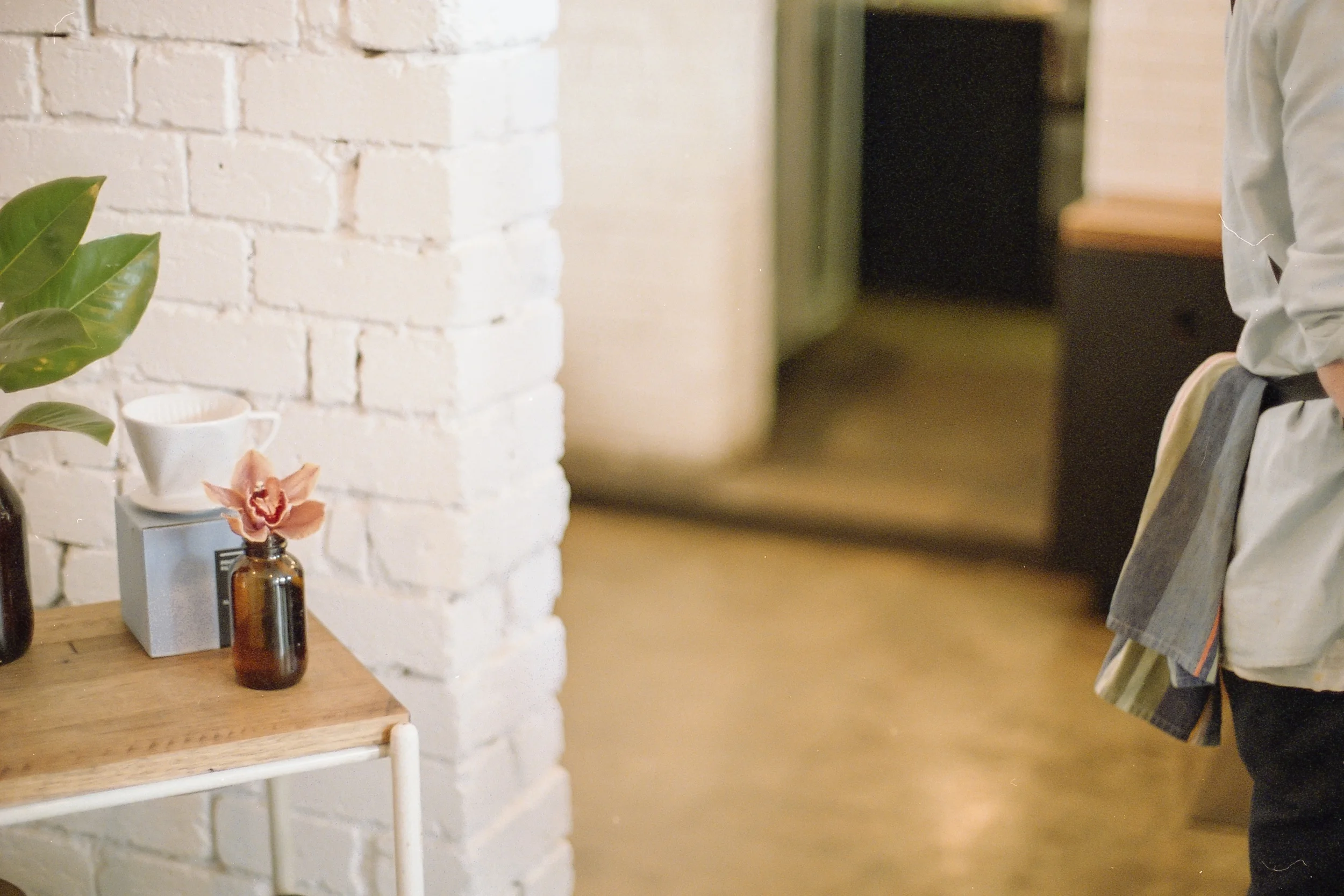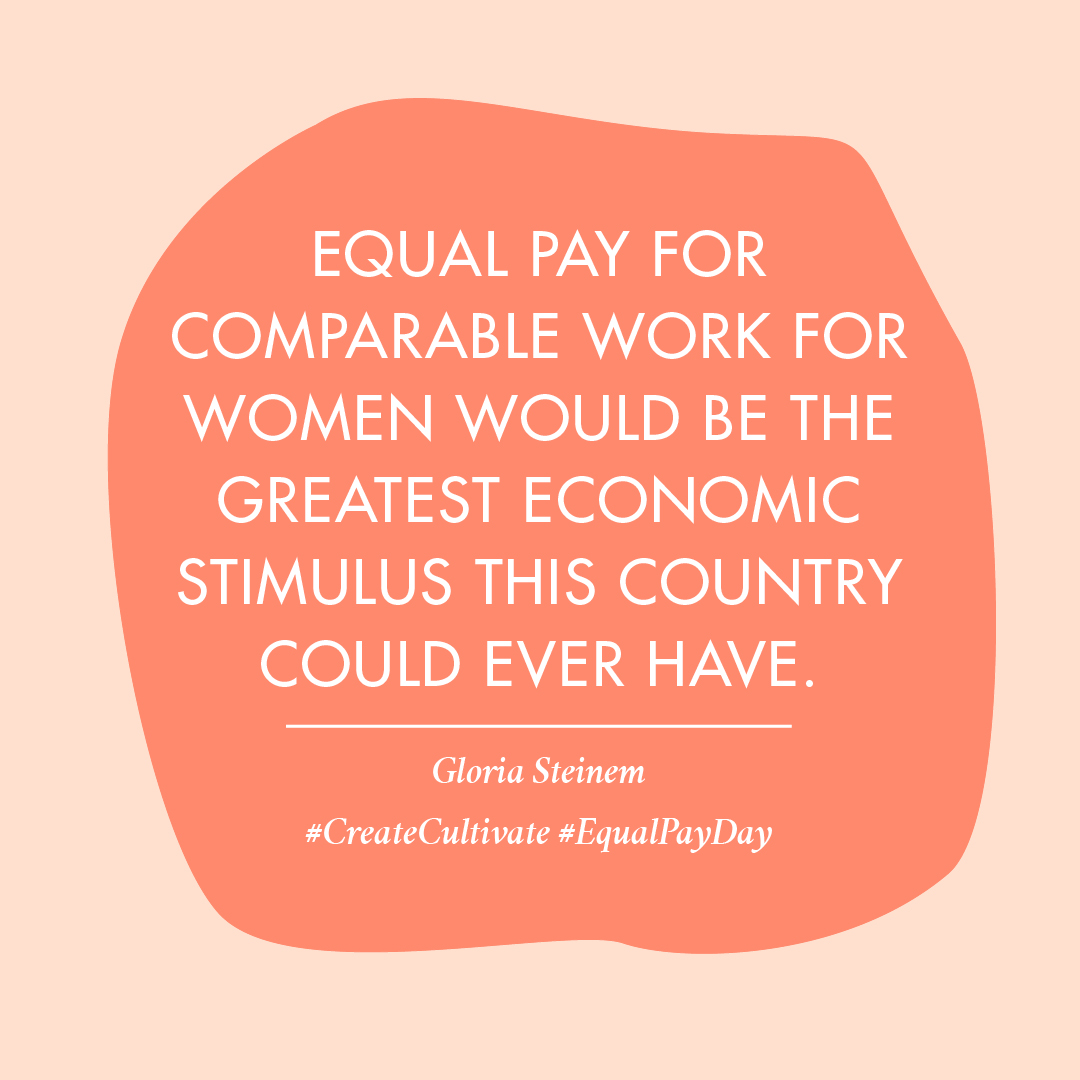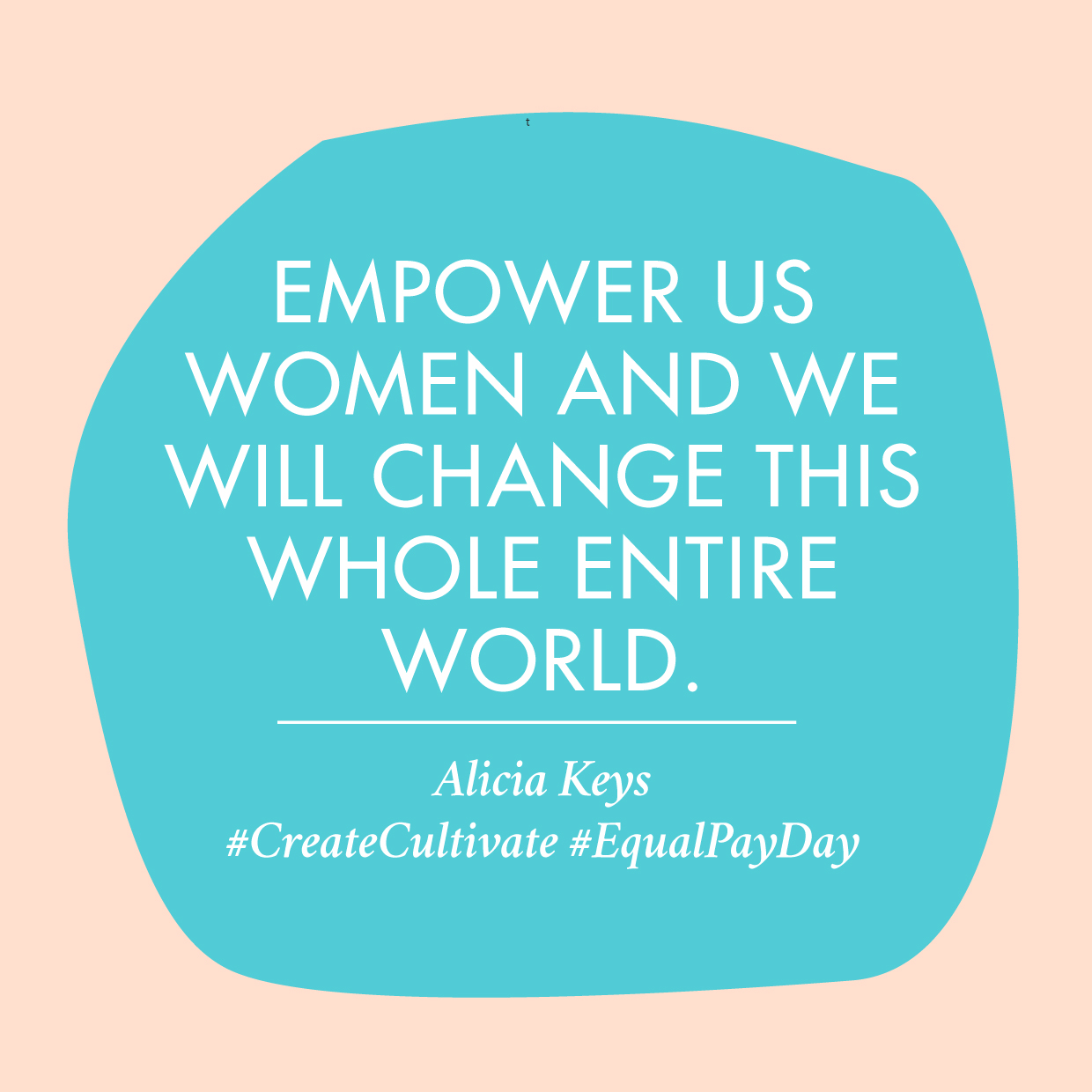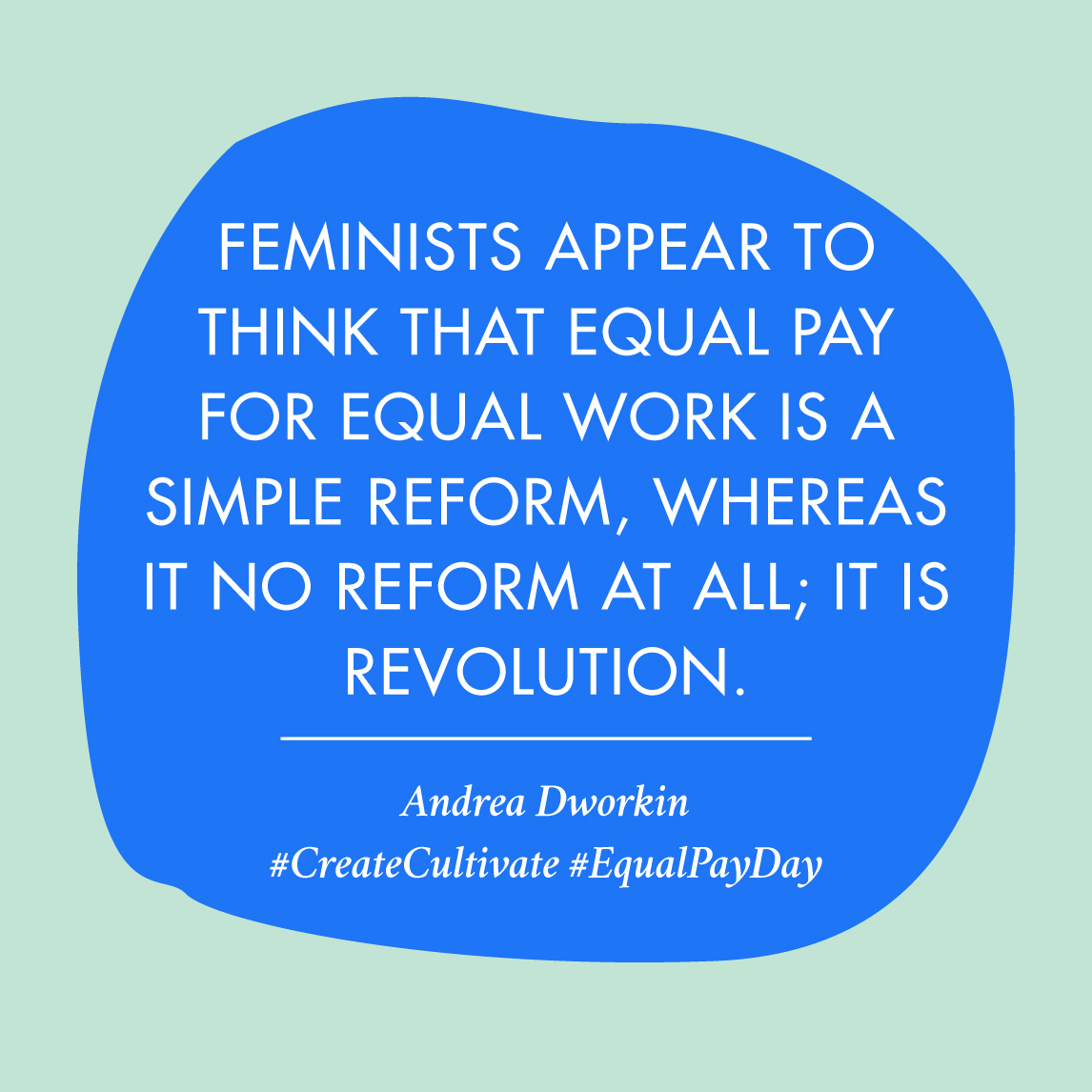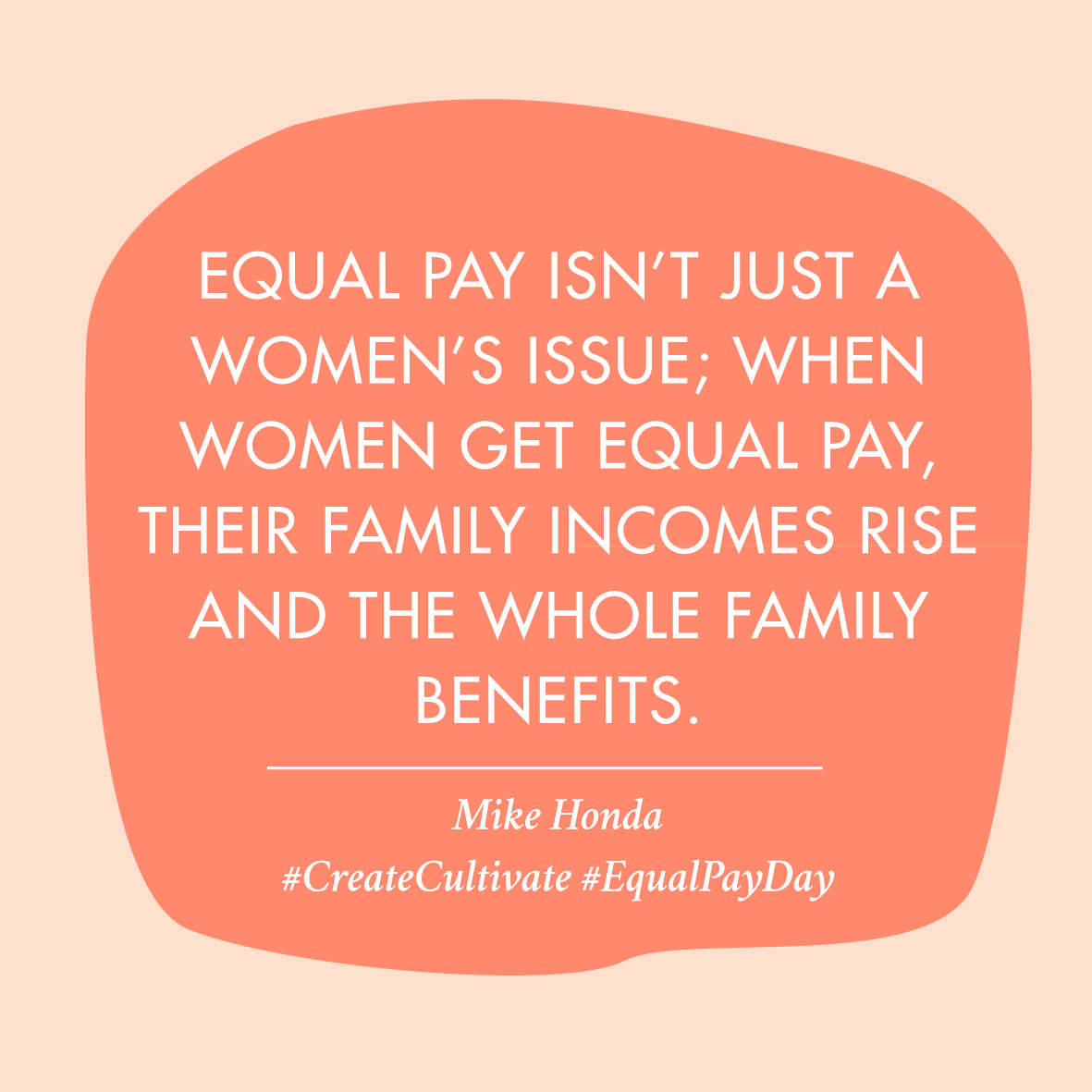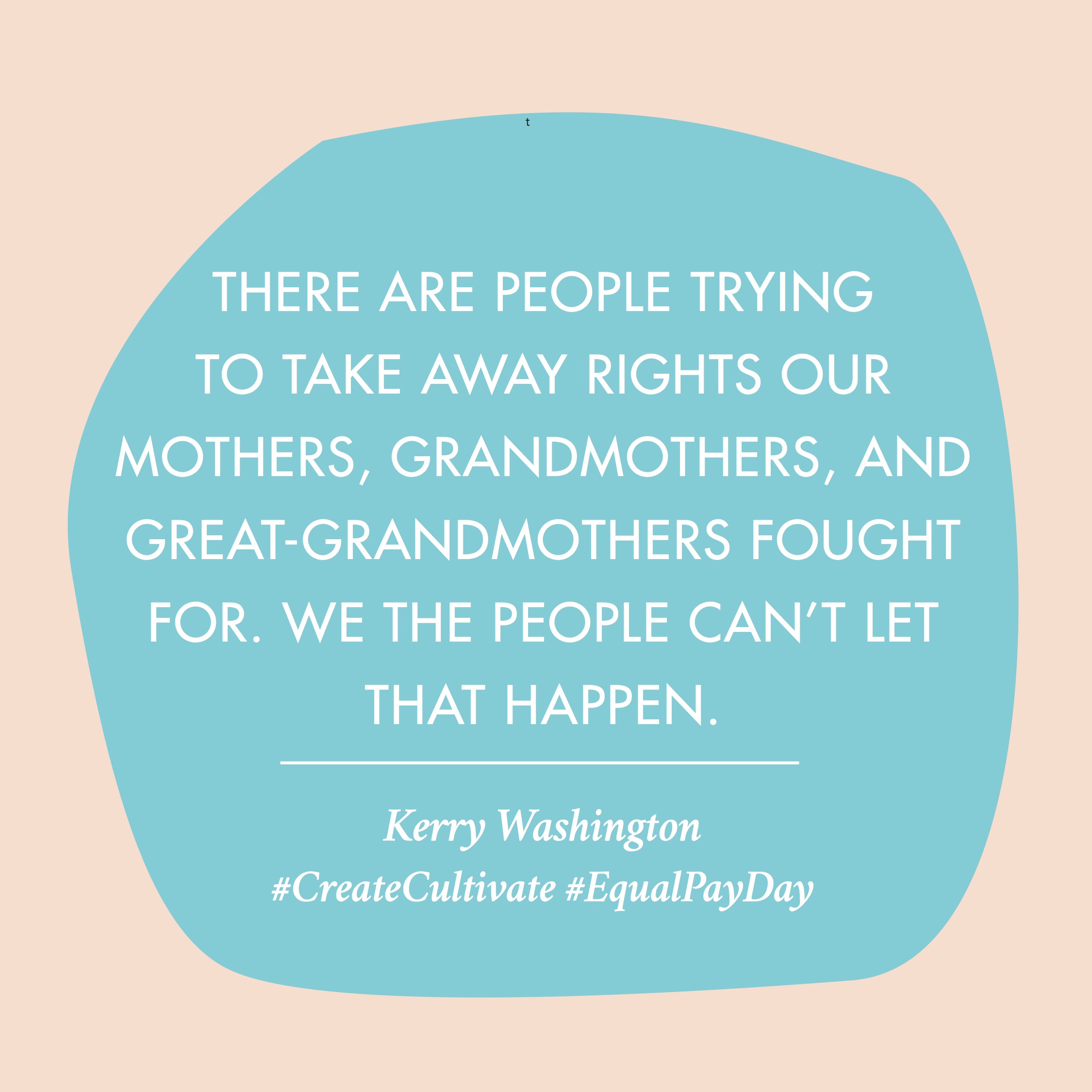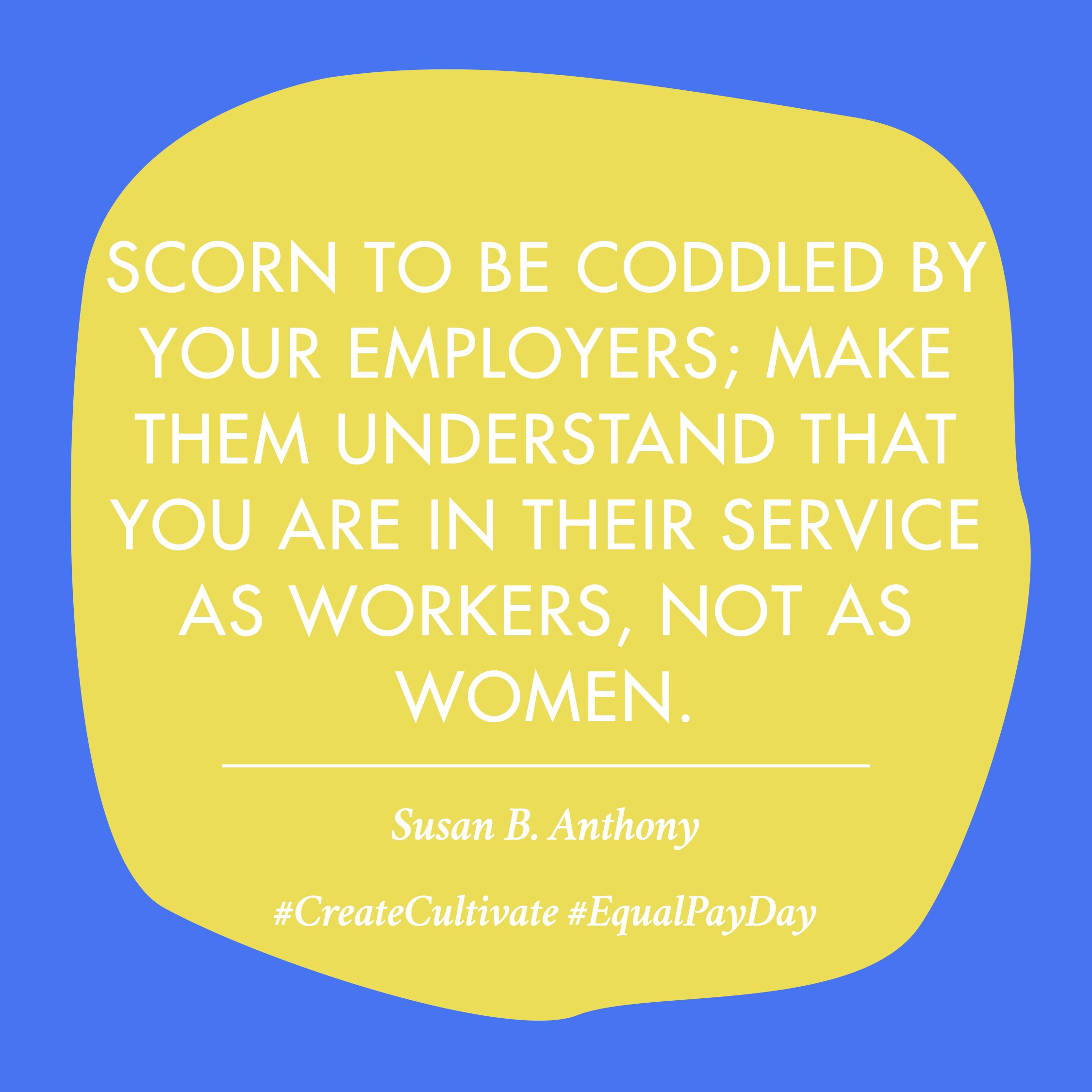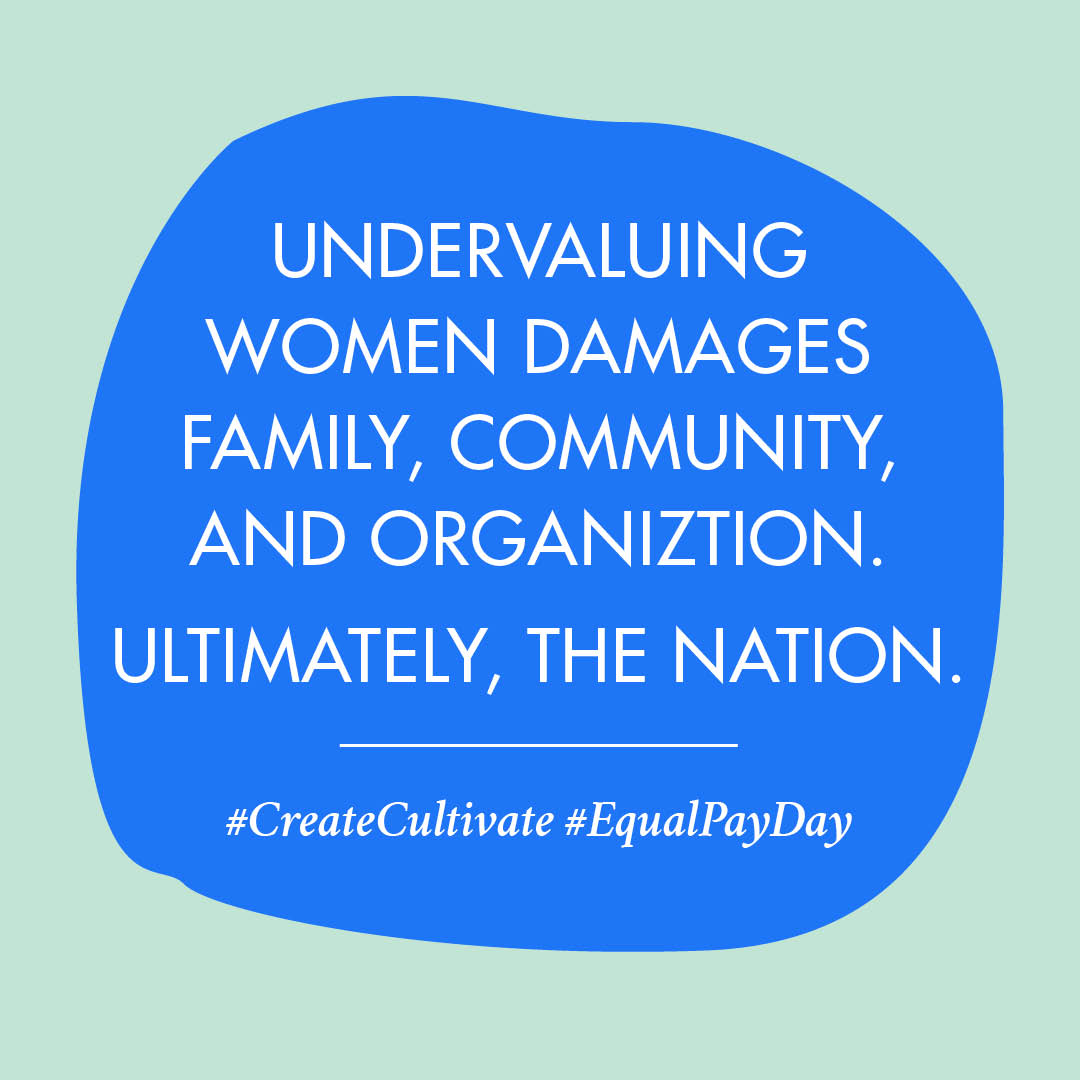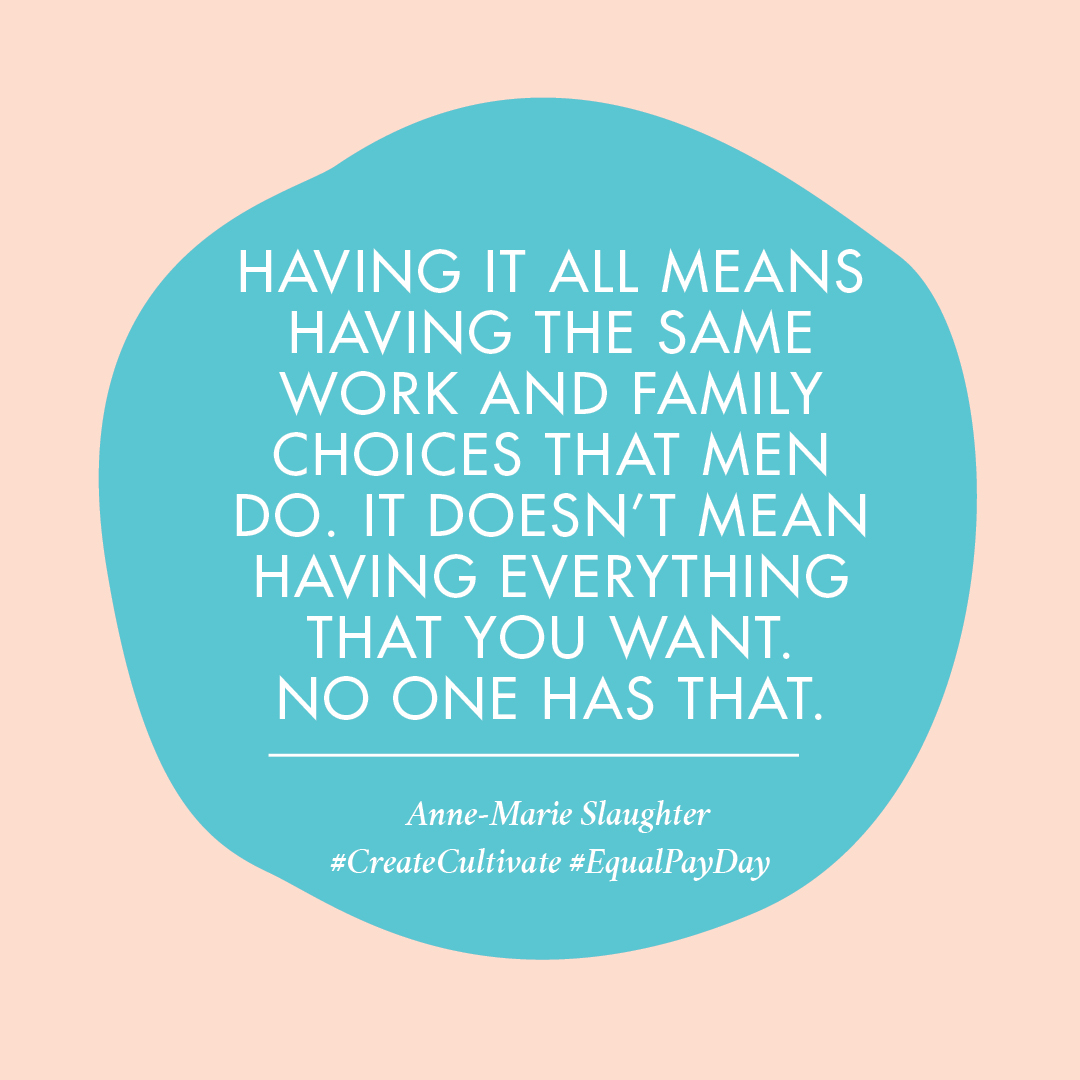Why I'll Never Take Period Time Off
Started from vaginas, now we here.
Like many '90s tweens, the first time I became aware that I could use my period as an excuse was watching Clueless. Arguing her way out of a tardy, protagonist Cher uses her period to defend herself: "I was surfing the crimson wave. I had to haul ass to the ladies'." Being the loveable, progressive that he is, her teacher, Mr. Hall forgives the punctuality faux period. And so sparked the idea in my head that my period was more like an ellipses.
I'd come but I have the worst cramps...
I don't want to get off my couch...
I need to stay home from school...
As women we've all used our periods as the reasoning to not attend certain functions or dinners, and I get it. Sometimes you don't want to chit chat about the chicken when your uterus feels like it's being ripped from your body. But skipping out on girl's night or date night is a little different from ditching work. Right?
Not for one company in London. Coexist, an education non-profit, made the media rounds this past March when it publicly addressed its company policy that will allow female employees to take time off for their periods: PTO, or Period Time Off.
Bex Baxter, one of Coexist’s company directors, told the Bristol Post, "I have managed many female members of staff over the years and I have seen women at work who are bent over double because of the pain caused by their periods. Despite this, they feel they cannot go home because they do not class themselves as unwell. And this is unfair.”
(Is this where I get to say: Life's not fair!?)
She continued, “The spring section of the cycle, immediately after a period, is a time when women are actually three times as productive as usual. So it is about balancing work-load in line with the natural cycles of the body."
Baxter is confident the company's new policy will increase productivity for the mostly female (there are seven males on a team of 31) staff, nor does she believe such a policy will threaten women's employability.
There is evidence to support such a claim. One such study from the University of Bath examined the effects of period pain on fifty-two healthy adult females. The study found that greater attentional inference effects (ability to concentrate) were found when women were in the pain phase of their period, and that likewise there was a general worsening of performance.
It’s part of a larger conversation about periods that’s dominating the www waves.
Man Repeller broke down the period talk in a post where contributor Haley Nahman asked “Have We Reached Peak Period?”
On the one hand, it’s refreshing that this conversation has been moved from the taboo shadows and into the streets. On the other, we have to ask: While periods are trending, are they also a reason to skip work? What happens when we prove that periods affect our concentration negatively?
“Periods may be trending, but are they a reason to skip work?”
Tweet this.
This isn't a new concept. Menstrual leave began in Japan in 1947 and in other Asian nations like Taiwan and Indonesia, paid periods are already a common part of workplace culture and laws. Nike is thought to be the only worldwide company to officially include menstrual leave as part of their Code of Conduct, which they implemented in 2007.
Considering the ongoing struggle surrounding equality in the workplace I have hard time accepting pro-period legislation as progress for women’s rights, however positioned. Periods are not a disability* and to treat them as such is debilitating to progress. Do employees who suffer from IBS get PTO? Women have fought too long and hard for equality for such measures to take the front seat.
I spoke with five women, who are all full time employees who all get monthly periods, and the consensus was that even if PTO was an option, they wouldn’t take it. Asking for period time off would just be yet another drop in hat of conversations that dominate workplace sexism, validating the claims of so many men and women who oppose the Equal Rights Amendment. Those that argue the wage gap is a myth and there’s a reason women are paid less.
Nor am I convinced that cycle awareness will help either women or men be more productive-- something that was discussed last month during a 'Pioneering Period Policy: Valuing Natural Cycles in the Workplace' seminar in the UK.
[Related: How to Deal with Sexism in the Workplace.]
It's a dialogue that reminds me of Gloria Steinam’s famous 1978 essay for Ms. Magazine, “If Men Could Menstruate.”
“So what would happen if suddenly, magically, men could menstruate and women could not?” she wrote. “Clearly, menstruation would become an enviable, worthy, masculine event: Men would brag about how long and how much.”
If men got their periods, there would be free Midol in the break room, PTO, and those that didn’t take it would be lauded for performing "so well!' during their “time of the month.” But that’s not the case, nor will it ever be.
So let’s fight the bloody wage gap first.
Let’s get paid the same dollars for the same work before we start drawing lines in the sand with our tampons. Sorry, but I don’t need my womb attuned to my 9-5 and for now I'm going to surf my crimson wave right into my office.
"Let's fight the wage gap before we start drawing lines in the sand with our tampons."
Tweet this.
But maybe that’s just me. Share your thoughts in the comments below.
*There are legitimate period-related medical conditions women face. We are not referring to these. NOT ONE LITTLE BIT.
Arianna Schioldager is Editor-in-Chief at Create & Cultivate. You can follow her @ariannawrotethis.
MORE FROM OUR BLOG
Google Finally Introduced These 11 New Much-Needed Emojis
Giving us something to smile about.
Since the dawn of the emoji, we've seen a fairly restrictive approach gender stereotypes. More often than not, we see more male emojis that tend to describe general everyday actions and certain jobs, while female emojis are restricted to reactions, princesses, brides, and even that spicy salsa lady dressed in red (because, truth, sometimes you need to send someone a cha, cha, chaaaa, but sometimes you want to show someone you're cha, cha, ching the boss).
It’s 2016 - and women are holding down jobs in STEM, the C-Suite, and HRC is running for POTUS. So our digital emoji world was running a little behind up until last week.
Thanks to Google, women are now represented not only as pretty princess emojis. Earlier this year, Google proposed to Unicode to introduce 11 new emoticons that represented women in diverse work fields to promote gender equality. This week for World Emoji Day, Google announced that they’re coming to life as part of 300 new Google emojis that are being introduced with Unicode.
Sometimes you need to send someone a cha, cha, cha, but sometimes you want to show someone you're cha, cha, ching, the boss.
Tweet this.
“While there’s a huge range of emoji, there aren’t a lot that highlight the diversity of women’s careers, or empower young girls,” wrote Nicole Bleuel, Marketing Lead & Diversity Champion, Emoji, in a recent blog post.
The 11 new emoticons include: doctor, policewoman, cook, coders, a female David Bowie-esque rockstar, farmer, mechanic, construction worker, and many more. The only two emojis that did not make the cut: tech line worker and a nurse.
“We proposed a set of new emoji to the Unicode Technical Committee that represent a wider range of professions for women (as well as men), and reflect the pivotal roles that women play in the world.,” said Google in their announcement on their blog. The new emojis will “make emoji more representative of the millions of people who use them.”
However, of course you can’t have progress, even in the emoji world, without a few haters.
“Why don't we get emoji's to represent humans/ mankind? Why women in particular? Then men also need some emojis like father, son etc.,” said one Twitter user in response to the announcement.
“I can't believe you let feminists get to you. Where is our Demi-queer Bi-gender disco pony day????,” said another user.
However, the fact that a conglomerate like Google was the first to campaign for more emoji representation of women in diverse work fields speaks volumes to the movement that continues to create equality for women in the workplace in the past century. (Even though there is a whole group of boys who see Anna and Elsa from Frozen as the new superheroes. More on that here.)
If Google, a powerful Silicon Valley-based tech company that is notorious for it’s lack of gender and racial diversity, is calling out for more representation within the world of tech itself, it's a step we can throw some love at. (Include all happy emojis here.) And it's a move that will hopefully influence the rest of Silicon Valley to recognize women for tech jobs.
We commend you Google, and we thank you. Because finally, we can show via text that we’re businesswomen, and we don’t have to substitute with a male emoji. Heart. Smiley. Thumbs up.
More from our blog:
Let's Make Every Day #EqualPayDay
Because it’s hard enough to get your dream job, you shouldn’t have to dream about equal pay too.
First put into law in 1963, The Equal Pay Act was aimed at abolishing wage disparity based on gender. It’s a law that has not changed, despite the fact that women still make less than men.
"Because it's hard enough to get your dream job, you shouldn't have to dream about equal pay too."
Tweet this.
Today is #EqualPayDay. A symbolic day that marks how far into the year women must work to earn what men earned the previous year. We believe that women should earn equal wages for equal work, and that this is a battle all people should fight.
U.S. Women's Soccer Team Files Historical Wage Complaint
Playing like a girl is badass according to Obama. Not getting paid an equal wage? The opposite.
UPDATE 5/26/16: The USWNT gained another ally in the fight for equal pay today, as the US Senate animously approved a non-binding resolution calling on the U.S. Soccer Federation to “immediately end gender pay inequity and to treat all athletes with the respect and dignity those athletes deserve.” (via Huffington Post)
This is a great first step in setting a precedent for equal pay across the United States, and goes to show that taking a stand and fighting for equal pay does pay off.
-
Today, the New York Times published a piece outlining an official complaint filed by five players from the U.S. women's national soccer with the Equal Employment Opportunity Commission. The complaint states that the U.S. Soccer Federation pays women-- current reigning World Cup champions far less than their male counterparts.
Five players-- Carli Lloyd, Becky Sauerbrunn, Hope Solo, Alex Morgan, and Megan Rapinoe-- signed the filing, arguing that every player on the women's nation team is paid thousand of dollars less than the men.
Although it was only these five high-profile members that signed the complaint, Sauerbrunn Tweeted, "Five players signed the complaint, but the decision to file was whole-heartedly supported by the entire team. #equalplayequalpay#thegals.”
According to the filing despite the fact that women generated 20 million dollars more in revenue than the men in 2015, they still earn four times less than the men. If they make the World Cup roster, female players make just 44% of what their male counterparts earn in bonus earnings: $30,000 to $68,750. Also included in the filing is the requirement for women's and men's teams to play a minimum of 20 "friendly" games per year. However, while the women get a bonus of $1,350 if they win a friendly match, the men are guaranteed $5,000 even if they lose, and can make up to $17,625 if they win, depending on their opponent's FIFA ranking.
It's a complicated issue, some citing that revenue disparity is not accurate. Others saying that if pay should be revenue based, then it's important to address the discrepancies that happen from the gate-- like field disparities between teams. "You must ask yourself why the potential for revenue generating is less?" wrote one commenter. "Why isn't the revenue pouring in when you have the highest viewed soccer game period? There is more going on here than people just like men's sports better."
During an interview on NBC's Today show, Lloyd, the 2015 FIFA women's player of the year said, "I think that we've proven our worth over the years. Just coming off of a World Cup win, the pay disparity between the men and women is just too large."
"I've been through numerous CBA negotiations, and honestly not much has changed,'' Solo told Matt Laeur. "We believe now the time is right because we believe it's a responsibility for women's sports, specifically women's soccer, to really do whatever it takes for equal pay and equal rights and to be treated with respect."
Laeur then raised an interesting question asking the four players who appeared on camera if they'd heard from any of the male players. It was met by uncomfortable laughter until Alex Morgan answered: "I'm sure they are in support of us. My husband plays professional soccer and he's very much in support of me." Lauer also asked the women if they were willing and prepared to boycott games or strike. The issue was skirted.
What unfolds will be interesting, potentially history-making, and serves as an important microcosm to address the pervasive sexism and wage gaps that affect all women.

